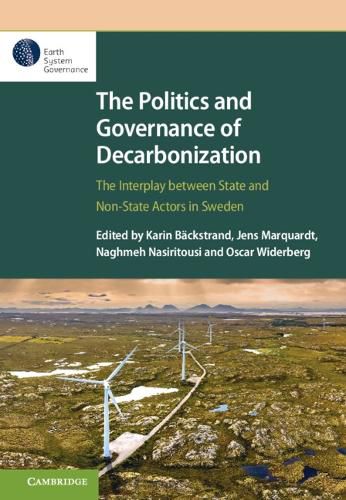Readings Newsletter
Become a Readings Member to make your shopping experience even easier.
Sign in or sign up for free!
You’re not far away from qualifying for FREE standard shipping within Australia
You’ve qualified for FREE standard shipping within Australia
The cart is loading…






This book examines how, and under what conditions, states - in collaboration with non-state actors - can govern a societal transformation toward large-scale decarbonization in line with the goals of the Paris Agreement. It advances an innovative analytical framework on how the state governs through collaborative climate governance to foster cooperation, deliberation, and consensus between state and non-state actors. The book focuses on Sweden, which aims to become a fossil-free state. The chapters analyze Sweden's progress toward net-zero emissions, its role in international climate governance, and how the COVID-19 pandemic affected climate networks. Providing valuable policy insights for other countries endeavoring to decarbonize, this book is a useful reference for graduate students and researchers in climate governance, political science, and international relations. It is one of a series of publications associated with the Earth System Governance Project. For more publications, see www.cambridge.org/earth-system-governance. This title is also available as Open Access on Cambridge Core.
$9.00 standard shipping within Australia
FREE standard shipping within Australia for orders over $100.00
Express & International shipping calculated at checkout
This book examines how, and under what conditions, states - in collaboration with non-state actors - can govern a societal transformation toward large-scale decarbonization in line with the goals of the Paris Agreement. It advances an innovative analytical framework on how the state governs through collaborative climate governance to foster cooperation, deliberation, and consensus between state and non-state actors. The book focuses on Sweden, which aims to become a fossil-free state. The chapters analyze Sweden's progress toward net-zero emissions, its role in international climate governance, and how the COVID-19 pandemic affected climate networks. Providing valuable policy insights for other countries endeavoring to decarbonize, this book is a useful reference for graduate students and researchers in climate governance, political science, and international relations. It is one of a series of publications associated with the Earth System Governance Project. For more publications, see www.cambridge.org/earth-system-governance. This title is also available as Open Access on Cambridge Core.